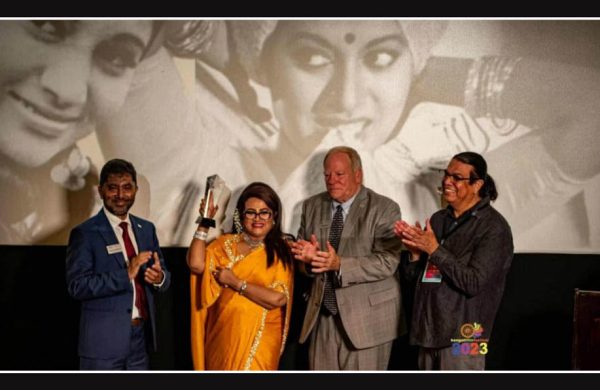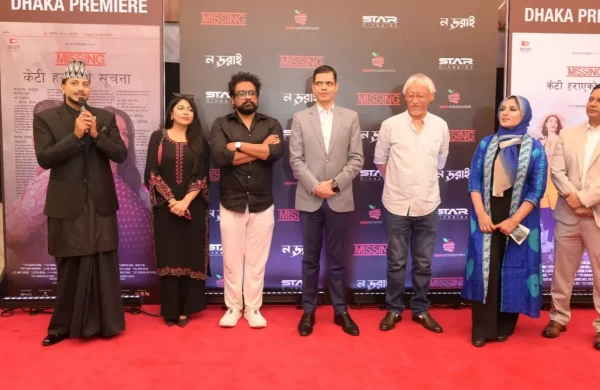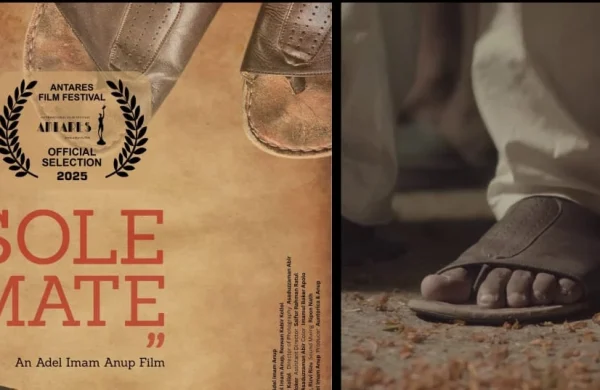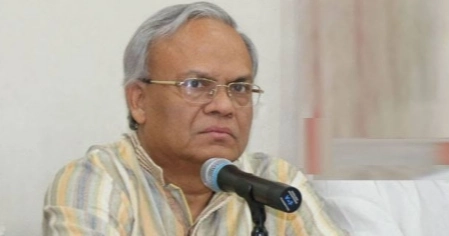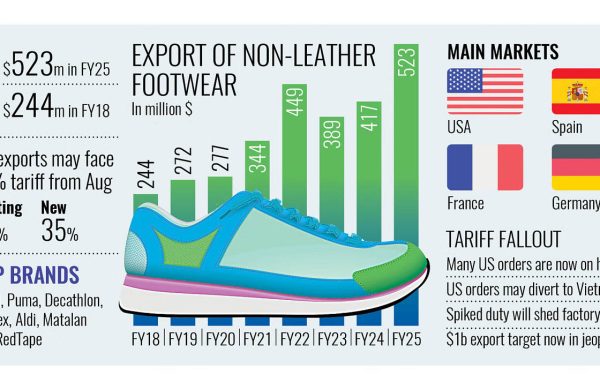Fund, future of documentary-making: Corporates can help
- Update Time : Saturday, July 27, 2024

Entertainment Desk:
In the world of cinema, documentaries have always been looked at condescendingly compared to feature films. Fund flow has always been easier for feature films than documentaries. So, it was significant that a message came out from the sidelines of the 18th Mumbai International Film Festival (MIFF) on June 20 that people must pay to watch documentary films to help create a culture like in the case of making feature films. This is the message that came out of an engrossing discussion on the future of documentary filmmaking in India held at MIFF.
While one often comes across debates on the availability of funds for feature film-making, a similar discussion on the funding for the much less glitzy world of documentaries is few and far between. But MIFF provided a refreshing break when the Indian Documentary Producers Association (IDPA) organized an Open Forum on ‘Creating new opportunities for documentary-funding.’ Some of the leading personalities from the film industry shared their views pointing to the challenges and potential solutions for the financial viability of documentary films in India.
Sanjit Narwekar, a national award winner, set the ball rolling by pointing to the importance of developing a paying audience for documentaries in India. Until such a culture emerges, documentary films cannot be made financially viable, he opined.
Narwekar said while people are ready to finance fiction films, the lack of a revenue model hampers the funding for documentaries. “Some filmmakers finance their own films which gives them artistic freedom. We have seen government, corporate and crowdsourcing funding for documentaries but none has really worked for filmmakers. People who spend their money always have some strings attached to it,” he said.
The veteran filmmaker said new technology and streaming platforms like MUBI are providing more screening avenues for documentaries.
Premendra Mazumder, a film critic and an author, echoed this sentiment by stating that Indian audiences do not have a popular culture of watching documentaries and a paying audience base must be established first.
Mazumder pointed out the global scale of the documentary film industry, valued at around $12 billion but lamented that India’s share is minimal. “With approximately 18,000-20,000 films receiving certifications annually in India, only around 2,000 are feature films and the rest are documentary films.
“But we are not seeing this whole chunk of films being screened anywhere. Organizations like the National Film Development Corporation go a long way in promoting the work of new documentary filmmakers”, he said.
Dharam Gulati, a producer, director, and academician, pointed to the need for OTT platforms dedicated to documentary films. He said modern technology has reduced the cost of documentary filmmaking, enabling filmmakers to self-fund their projects.
Gulati suggested the government provide tax incentives to corporations using Corporate Social Responsibility funds for documentaries and mandate multiplexes to screen documentaries in exchange for tax benefits.
Sharing a differing perspective, Utpal Datta, a writer and Professor of Practice at Assam Down Town University highlighted the challenges of complex bureaucratic processes in obtaining government funding.
Datta said people value paid content over free offerings and suggested that documentary film festivals should always charge for attendance.
Dev Kanya Thakur, an independent filmmaker and freelance writer, urged documentary filmmakers to explore emerging platforms like YouTube and OTT services. She suggested seeking funds from organizations with specific themes and utilizing corporate funds.
Thakur proposed institutionalizing documentary filmmaking to attract funding and recommended that stakeholders like IDPA and the Bitchitra collective collaborate to finance documentaries and establish fellowships for aspiring filmmakers.
She also highlighted the potential of crowd-funding and the importance of creating compelling content to attract viewership. Thakur noted the increasing number of women documentary filmmakers, helping to close the gender gap in the industry.
Maya Chandra, a film production entrepreneur, said youngsters seem less passionate about documentaries compared to feature films and called for establishing a separate body for documentary film promotion.
Chandra said corporate funds have recently started flowing into documentary films in states like Karnataka and suggested that IDPA could partner with theater chains like INOX and PVR to screen documentaries, thereby cultivating an audience culture.
The question is how do documentary filmmakers go about scouting for corporate funding? Or co-production, sponsorships and collaboration with corporations? The general opinion at a separate session was that documentary makers can get corporate funding for making films on women’s empowerment, arts and culture, environment and sustainability, healthcare and sports.
Krishna Vilasini, Director- Corporate Affairs and Engagement, L’oreal India advised documentary film-makers to find out about social issues being endorsed by a brand and then accordingly pitch their subjects to the prospective companies.
Amit Bhasin, Chief Legal Officer and Group General Counsel, Marico Limited, said that as per the government regulatory framework, corporates cannot invest their Corporate Social Responsibility funds for causes that have an implication on their business. According to Prasanth Venkatesh, Marketing Director, Brand Unilever, good story-telling can help brands to increase impact.”



